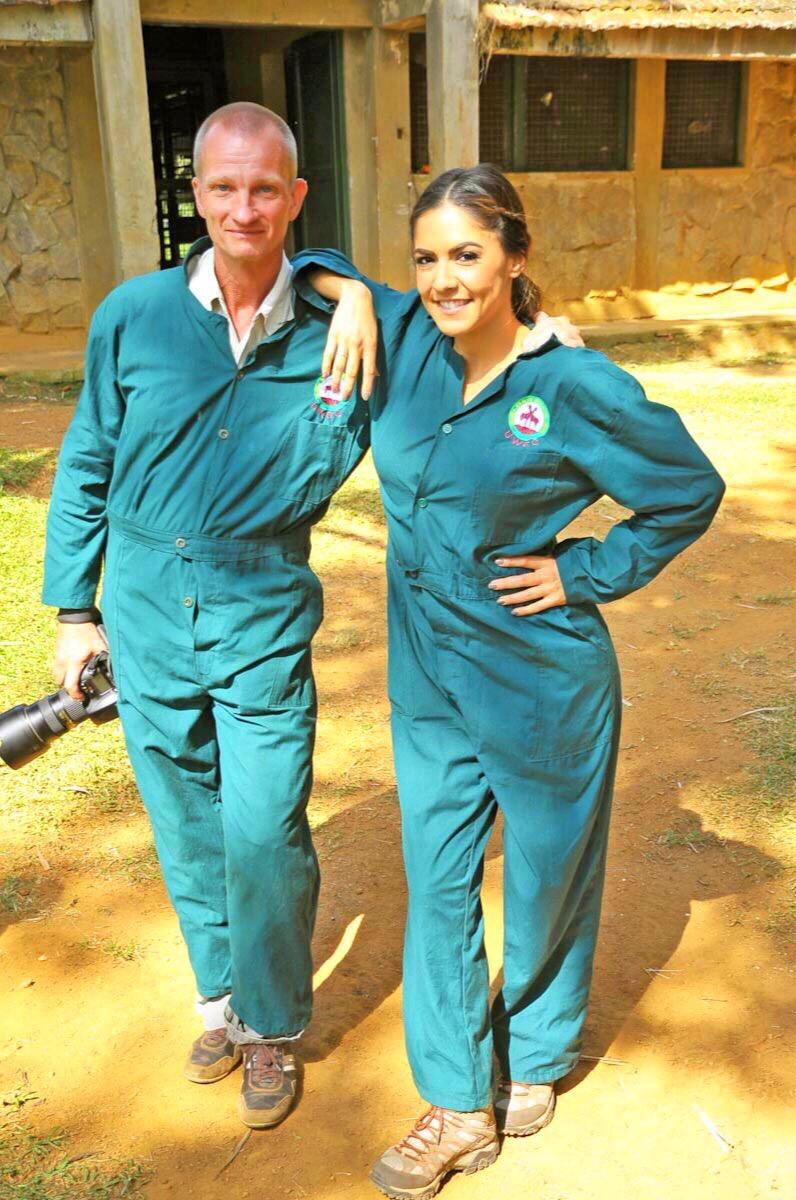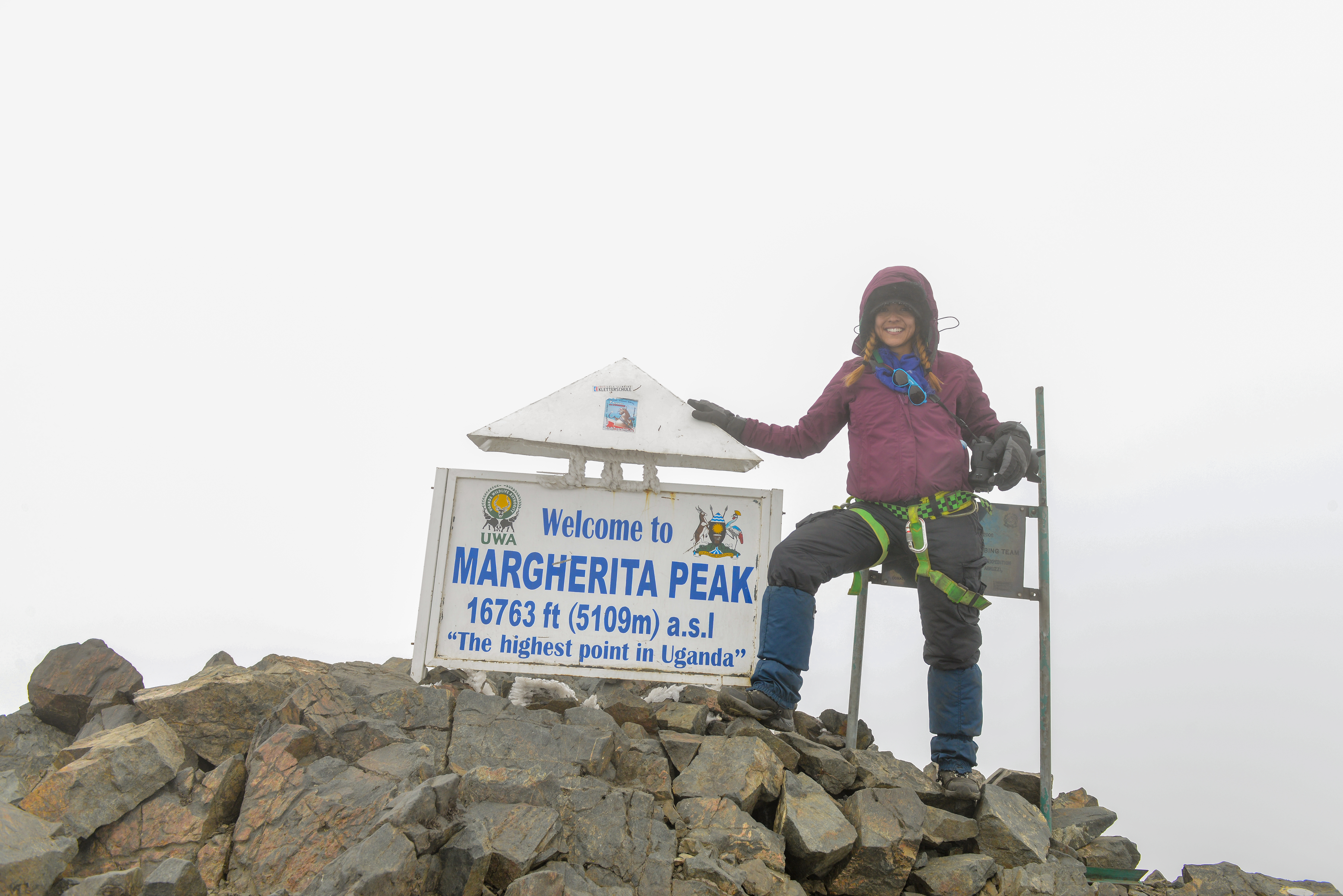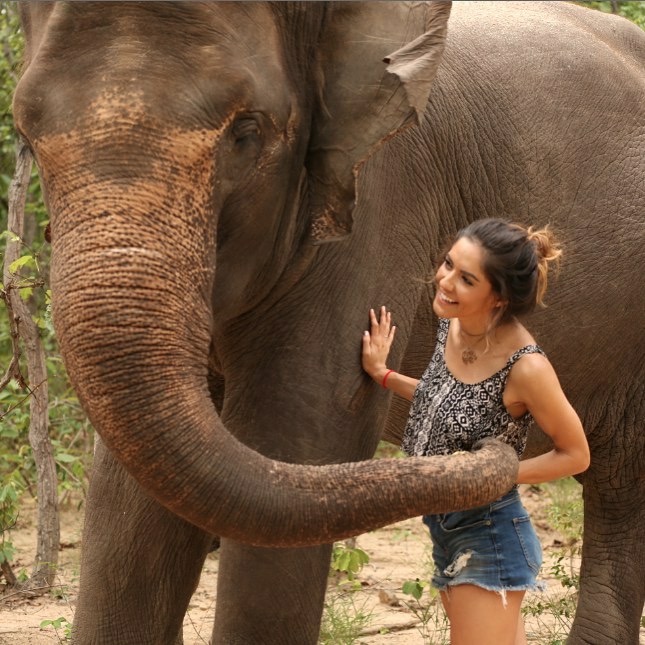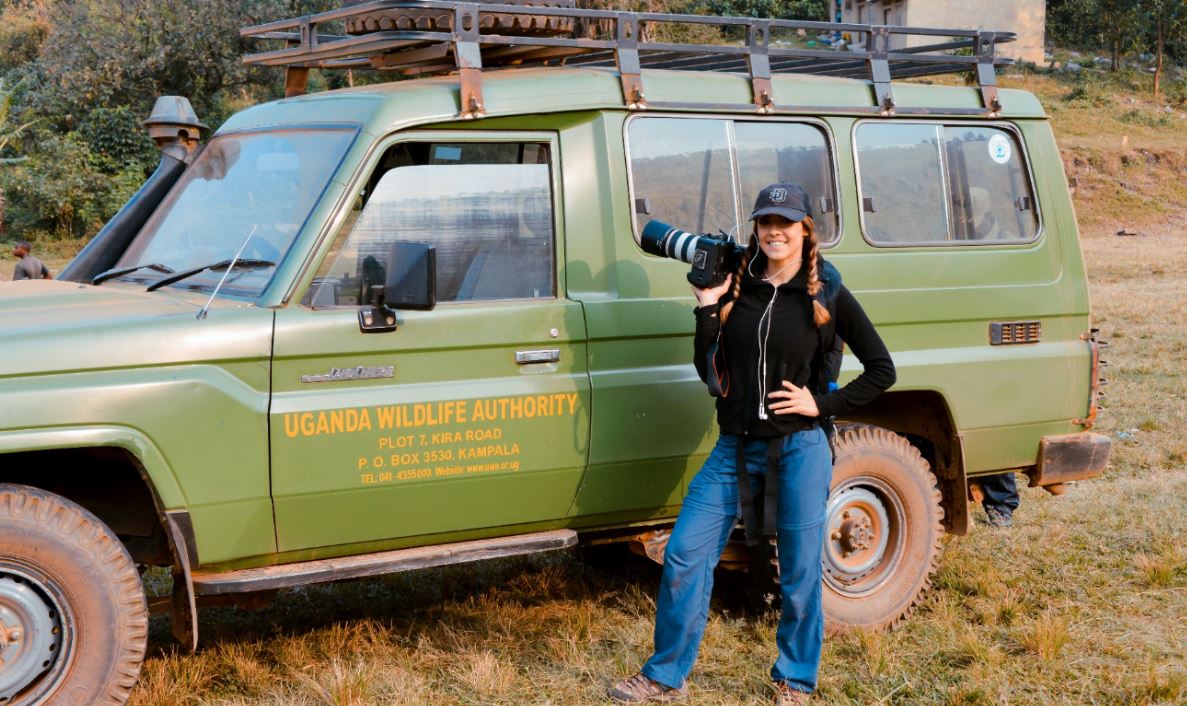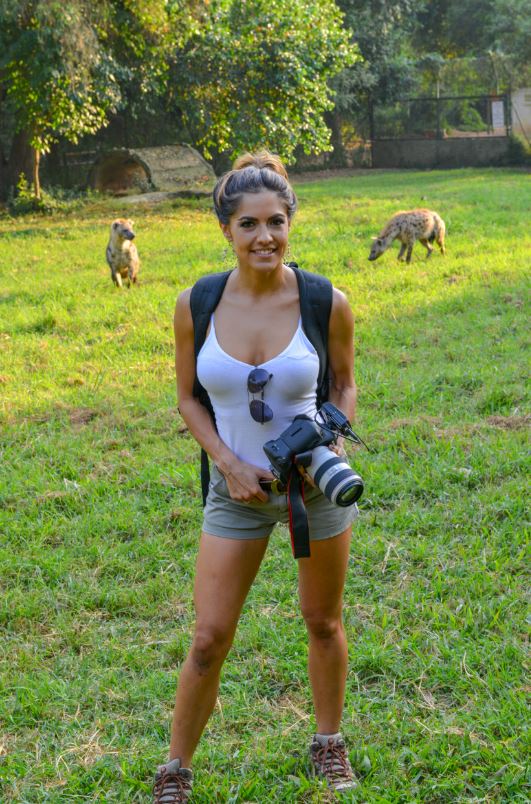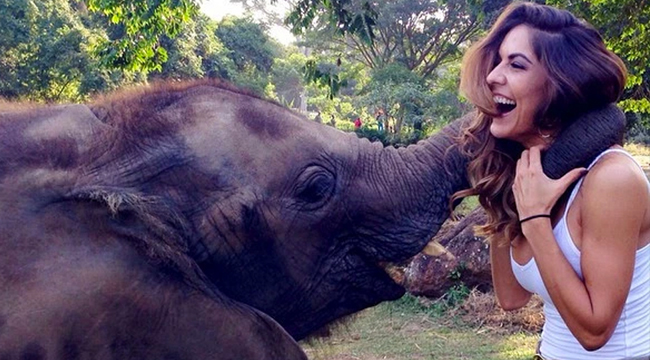
Most of us will only live one life (though… who knows, y’know?). We’ll pick a career path and spend our time on earth adjusting as necessary to advance to the top. But there are also people who, for a variety of reasons, excel in multiple fields (lucky jerks). Maybe they’re polymaths. Maybe they’re easily bored. Maybe they have a series of life-changing events that make a pivot inevitable. This ability — to shift gears and thrive — makes for a damn interesting individual.
Marlina Moreno has always lived a bit of a double life. She spent her childhood both dancing lithely through ballet classes and getting her hands dirty on a farm. When it came time to move into adulthood, she kept all of her interests but focused on the dancing for a paycheck. During college, she worked as an NFL cheerleader and professional dancer while snapping up on-camera hosting and commercial acting. But, it wasn’t fulfilling her. There was an aspect of her personality that was languishing.
Moreno completed a bachelor’s degree in advertising and founded her own green cleaning company. While she was running it, she also went back to school and completed an MBA. But, it still wasn’t enough, she had travel and conservation dreams that weren’t incorporated into her daily life or career path. So, she began adventuring, and she picked up a camera to film the people she met along the way.
In 2016, she was named a finalist for National Geographic Wild “Wild To Inspire” film contest for her work in conservation media. Next, she founded Project:Conservation, a nonprofit media organization dedicated to raising awareness about pressing global conservation issues. She was finally incorporating all of her interests and building a life that fulfilled her and drew attention to the causes that she felt passionate about. The following year, she completed her second master’s degree. This time, her focus was conservation-focused biology.
At the moment, Marlina and her fiancee are driving an old Land Rover across Africa meeting conservationists and boosting their signals. So we felt lucky that she was able to find free time and a solid wifi connection to Skype with us about her life as a nontraditional conservationist. She talked about her evolution in the field, the resistance she’s felt from others, the difficulty of connecting her many lives, and how young people can join the movement.
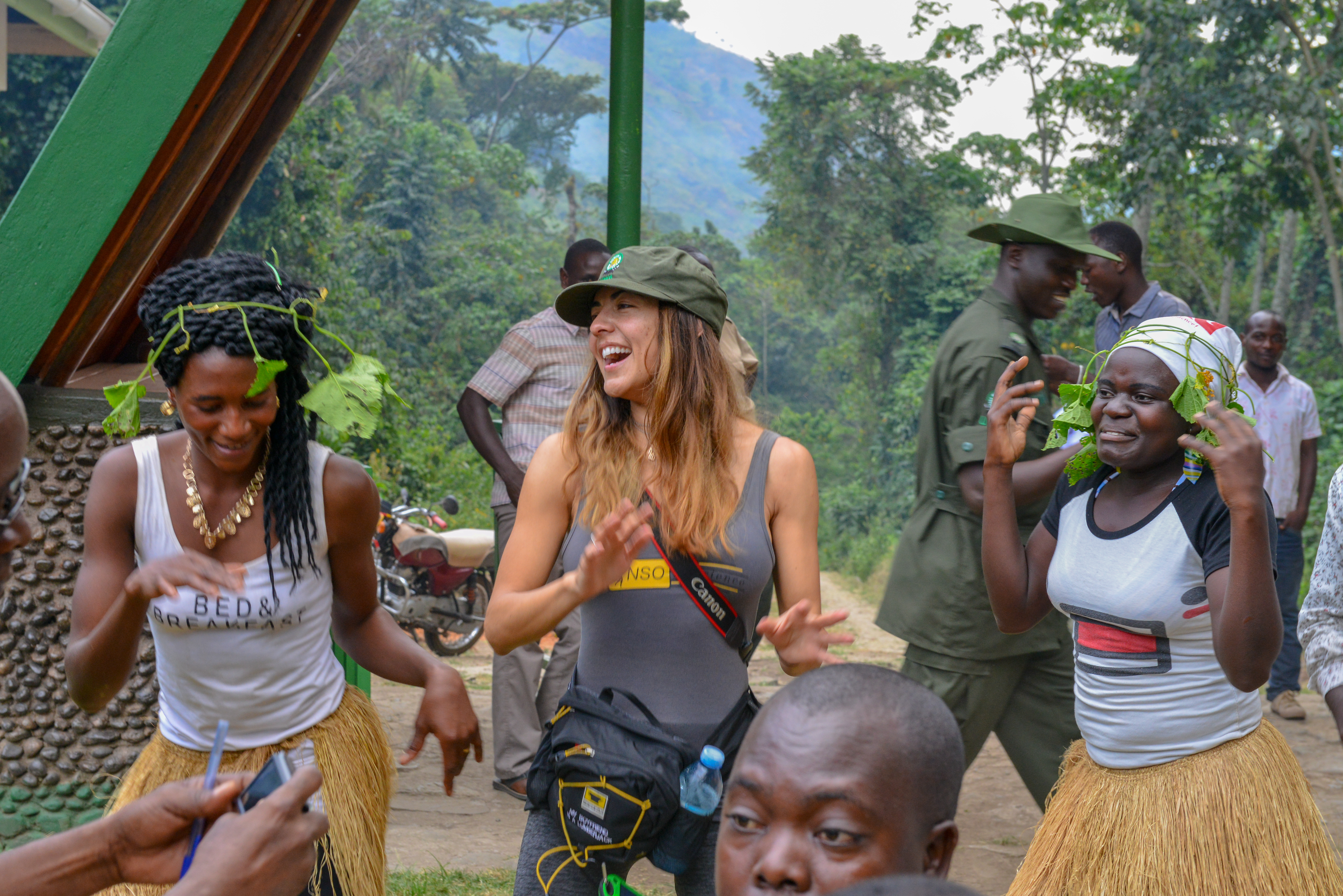
How did you end up in the conservation field?
I wish there was one answer. I’ve always loved animals and nature… super cliché, I know. I had a really interesting lifestyle growing up. I grew up on a farm, and my dad is a professional falconer; he raised birds of prey my whole life. We’d always have people coming over, and he knows the curators at zoos. I was always surrounded by people who were really passionate about conservation.
I lived my “normal” American life for the duration of my later childhood and my high school and college years. Then, I woke up one day, and I was in corporate America and I was dancing professionally and doing all my little cheerleading stuff. I thought, “I want to do something more meaningful. What am I really passionate about?”
I had been dabbling in some on-camera hosting and commercial work, and I was living in LA at the time. I considered, “Maybe there’s a way to use this as a platform but to do something that has more of a purpose and gives back.” I love travel, so the idea of marrying travel with media was the first step, but I wanted it to be something that I could be passionate about.
Living in LA for so long and working in the entertainment industry, I had friends, but I also had this other side of me. It was the same when I was growing up. I always had my dance and cheerleading friends, but then I had my horse and 4H friends. I’ve always had these two very different lives. One of my motivations at this point was to blend them.
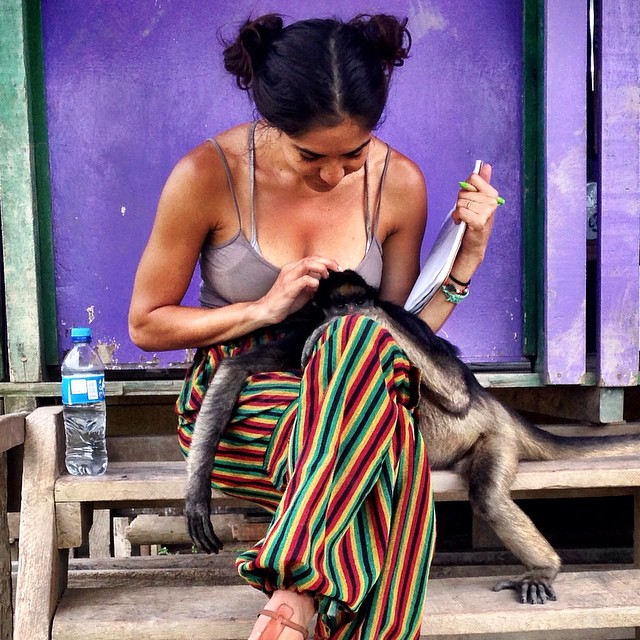
Did you move into the conservation side at that point?
My initial step in conservation was media focused. I thought I wanted to do journalism, so I booked my first trip to South Africa. That was a volunteer trip to a primate sanctuary because I love primates. My goal was to take an on-camera hostee/vlog approach. But, ultimately, I felt if this was what I really cared about and I was there because I wanted to help, I didn’t need to be on camera. It didn’t have to be about me, so I started filming everyone at the project. I started filming the other volunteers, hearing their stories. Filming the people who’d been there for a long time, given up their lives to pursue conservation.
I felt like I was putting one foot in, but I still had my one foot in my other life. I was like, “You know what? If I’m going to do this, I have to do it wholeheartedly. I want to earn my stripes, and I want to do it in a way that people will respect.”
I invested a lot of time to really understand how the conservation arena worked and to find out where I could fit: where my place would be and how I could actually give back. I knew after my first few years of dabbling in it that I wasn’t ever going to be a field biologist. I knew that just wasn’t the lifestyle I wanted. I have so much respect for those people, but I’m like how can I honor them?
For me, it was going back to this idea of bridging my two worlds. I’ve always really stayed more on the side of promoting conservation. I went back to school and earned my masters in conservation biology. I wanted to be taken seriously, but I always knew that I was never going to use my degree or my educational background to go and get a traditional career.
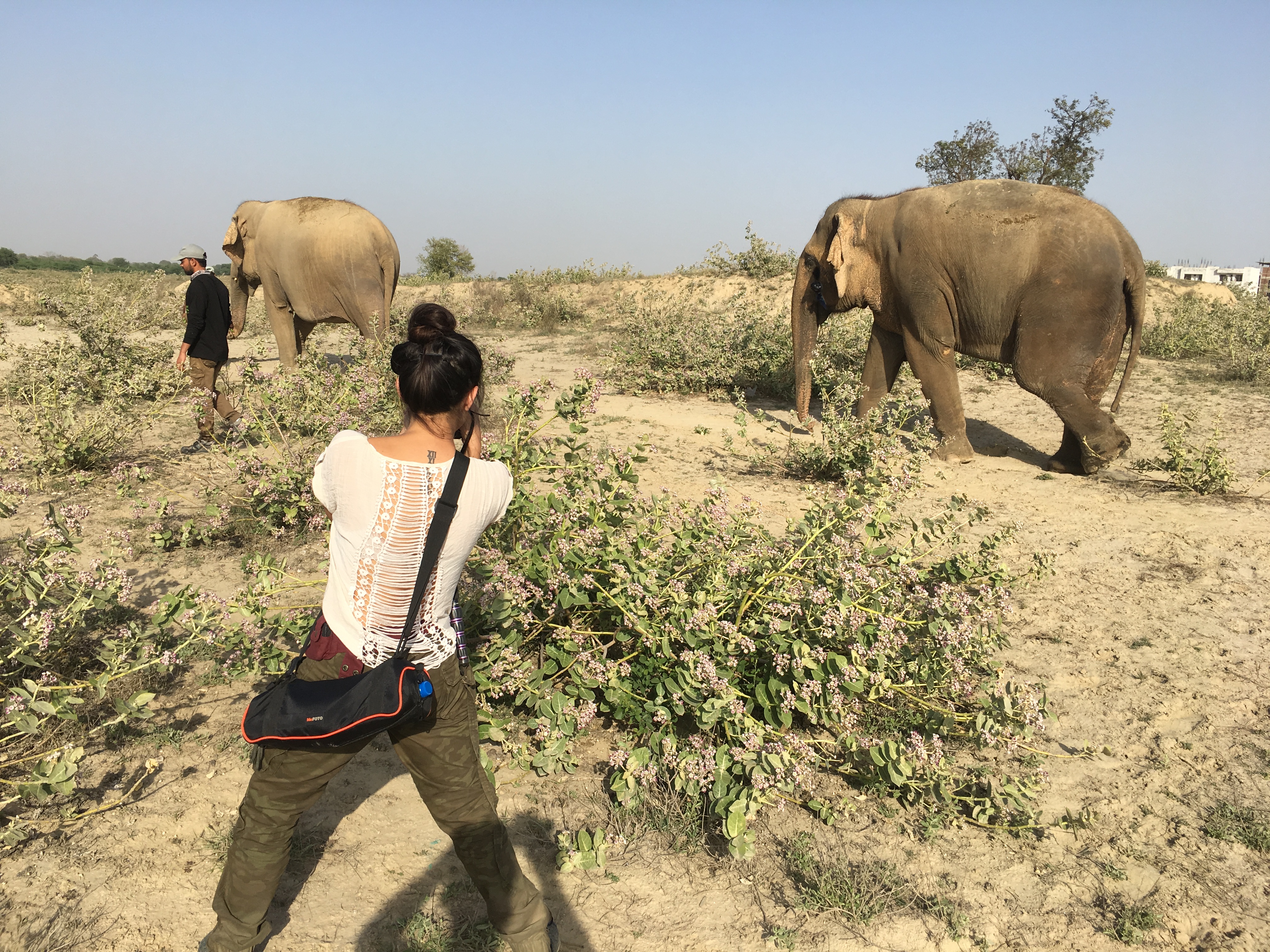
When I was in grad school, every summer I’d go abroad and do field expeditions. The people that I would meet are doing such amazing things. I could shine a little light on this stuff and make it cool and make it interesting and make it something that my mainstream friends would be interested in. To me, that’s sort of my place in conservation. I feel over time it has developed, and I think that is the role in which I would like to continue improving.
I feel like I could truly sit at a table with the Jane Goodalls of the world, and the Kim Kardashians of the world. I’d like for us all to have a conversation, and I feel like because of my strange dichotomy of a life, we could. I am this little bridge between two very different worlds.
You have a very different background than a traditional conservationist. Are you welcomed into the community?
A lot of people when they meet me or see more of the fluffy, social media stuff assume I’m a certain way. If they know that I used to do X, Y or Z, then I don’t get taken as seriously. I would say I get more pushback from the conservation arena. On the other side of it, in the more nightclub mainstream LA world, it’s more novel. So, they’re at least willing to be like, “Oh hey? What are you up to?”
Because of the push back that I’ve gotten, I try to be more “conservative” and not be as out there as I used to be. For the last two years I still danced, you know? I’d go dancing and dance at night clubs, and I never really talked about it or promoted it that much. If we had a big night club performer, they’d push us to promote it, but I don’t want that to be my identity anymore.
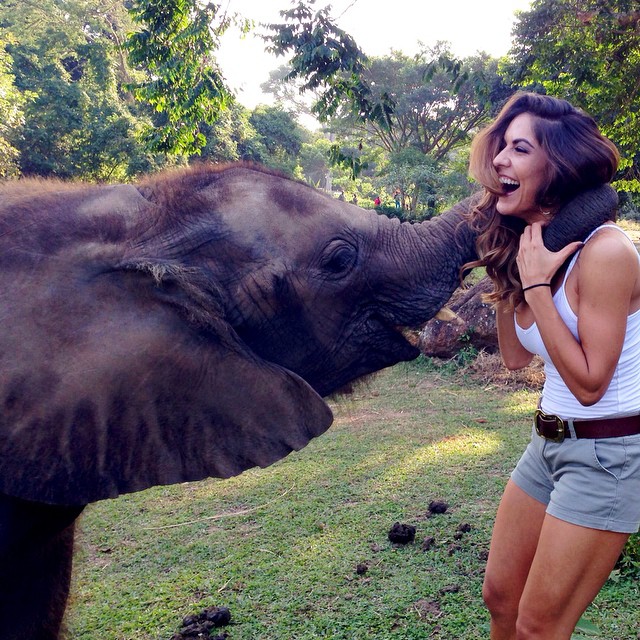
I do feel stuck in this weird little area, and I haven’t quite figured it out. It could take me really long to figure out what my brand is and what my purpose is in terms of a tangible way of executing it. I feel like I can picture it and I can sort of maybe put in the words, but actually executing it has been a lot more difficult than I expected.
I know I don’t want to go and be a field biologist, although I have the credentials to do it. But, I know I don’t want to go and just try become a social media influencer and or pursue hosting and be forced to use stuff that I’ve used my whole life to get people to pay attention to something that’s important. I want to try and find a balance.
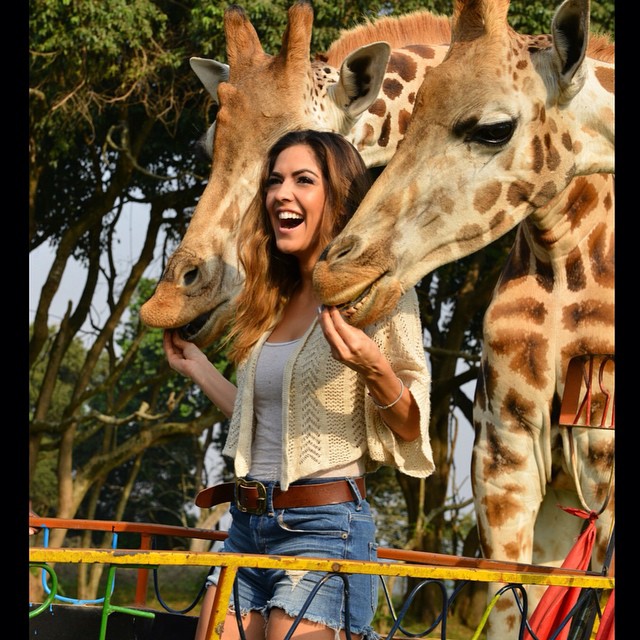
I tweeted the other day that I wanted to be hot, like so hot that men online were threatened by me and discounted my opinions, but you’re that hot. So, I’m not surprised that you would get pushback for some reason.
I feel like I am super tomboy. I’m actually really not girly girl. I haven’t shaved my legs in a week. I haven’t shaved my armpits. I work a lot from home because I do a lot of freelance work. I do video editing and WordPress and all that. That’s how I’ve been making my money for the last couple of years and sustaining myself.
I don’t have to go out in public, and I’ve become very anti-social. That’s how I grew up; my mom is very tomboy. I grew up on a farm. I was always barefoot outside in my diaper; that’s just how it was. Playing with my horses and my dogs and our goats and pigs. When I wear my conservation hat, I really downplay any girly girlness at all. I feel like I have to do that. I mean, I’m comfortable that way, don’t get me wrong. I don’t ever want people to think that I am doing it for the wrong reasons or whatever.
I’m much more comfortable bringing my conservation world into my other, whatever world than I am bringing my mainstream world in my conservation world.
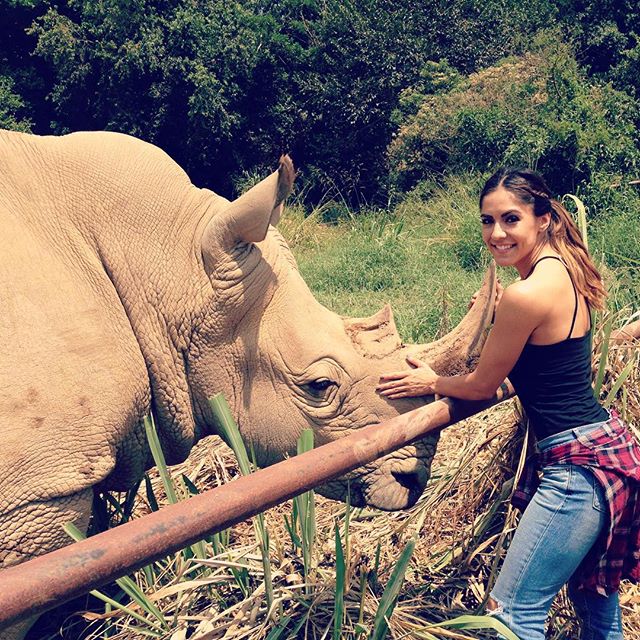
In the sciences, deference to men is still pretty strong despite women like Jane Goodall.
It absolutely is, and the thing is, I have a really difficult time with men like that. In the conservation world, it’s like, “You don’t have your PhD?” I definitely find the guys in that industry show off more. It’s weird that it’s a harder boys club to get into or to feel like an equal. Yes, it’s hard to get their respect and rightfully so. I’m not knocking that at all. I’m down with that. It’s more freaking competitive in the world of conservation. I’d rather compete with that bubble than the conservation bubble because I think people are a lot more tough in the conservation bubble.
And, I think that, in a weird way, pushed me into the more of, “I’m here to honor you.” I’m not here to bow down to you, but like I’m very much here to be like, “Hey, I respect that. Look, I know where you are and I know where you stand, I know the platform you stand on and I know everything you’ve done. Don’t worry you don’t have to remind me 500 times.” I’m not trying to even compete with you because I know I probably can’t. But, I’m totally down to tell your story, and I’m totally down to talk about how awesome you are.
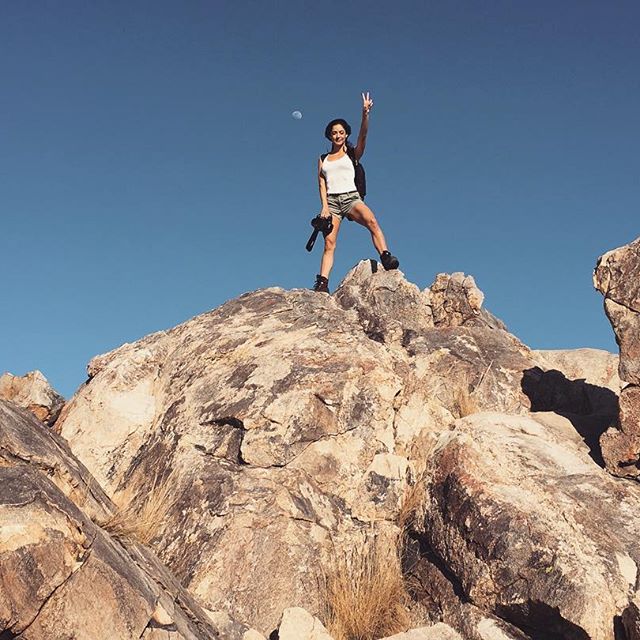
Do you connect with women in conservation?
I’ve really been blessed in the last couple of years. I’ve met some incredible women in conservation. I actually just finished a short film. I’m going to put it out probably in the next week or so about a girl I met in Nicaragua.
I met her on a boat randomly. I went to Nicaragua myself, it was the only trip I had ever gone on, I had no plans. I had the first night planned and then I was like, “I’m going to see where the wind takes me.” Long story short, she told me she was out there to save some dogs she met on an island. And she was like, “Yeah, I came with my friend and we found this dog, and I can’t stop thinking about it. I’m going to rescue it.” And I was like, “The hell, I got a camera and a microphone can I follow you around and video you.”
And I made a short documentary. This is like two, three years ago. And I never did anything with the footage. I got inspired to make this thing a film. I just finished it a week ago. And it was only three minutes.
The majority of the people that I feel like I’ve met that have really stood out and stuck with me have been women. It’s so interesting because I feel like there’s only a few that mainstream people know about. And not to equate because a lot of them are actually conservationists but, when you look at the Animal Planets or the Discovery Channels and the Nat Geos and the Nat Geo Wild, it’s very male dominated. There’s not really a lot of popular female conservationists. I would love to see that change. Especially because when I travel, those are the people who’ve been the most embracing to me. Not saying the men haven’t been great guys, don’t get me wrong. I’ve had great professors and I’ve meet some really incredible people for project work.
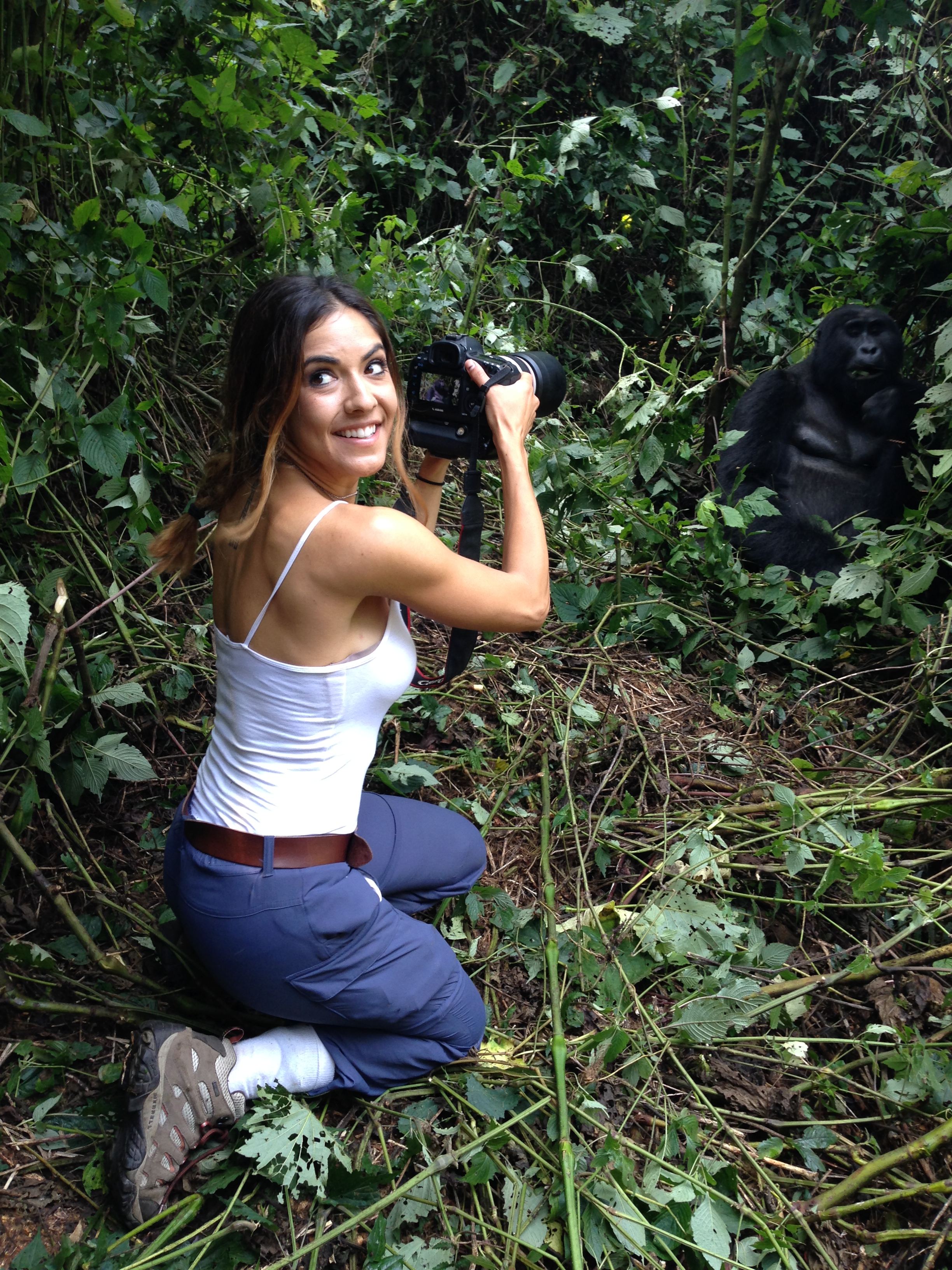
I feel like you’re uniquely positioned. You’re not doing field work, but you’re trying to boost the signals of people doing field work? How can other people get involved in that? What would you recommend young people do?
A girl just wrote me on Instagram, and she was like, “I really love animals. I wanna get involved with conservation. Where do I start?” And I was like, “Look, depending, you’re can go field work, go hardcore science space, work more administratively or whatnot. I think the best thing you can do first is get your feet wet volunteering. Go out and get some hands-on experience.” Go see what’s out there.
One thing I really wanna point out too is a lot of people think, “Oh, if I could volunteer with wildlife, I’m gonna hold baby lion or a baby monkey or whatever.” That’s a really dangerous thing to focus on social media and trying to make “conservation” popular. There’s a lot of false projects out there that put on a front that they’re a conservation. We’re wanting to find a volunteer opportunity that’s actually great for conservation, one where you’re actually learning about how conservation works and how you can make it sustainable. It is difficult because a lot of them will pose as proper conservation projects and really they’re just petting zoos that get people to pay money to come visit. I think it’s starts with doing some really detailed research.
You don’t have go crazy. You don’t have to go abroad. You don’t have to go to Africa. You don’t have to go to South America or Central America to get hands on experience. All of the states have options. We have tons of biodiversity in California. There’s likely stuff to get involved in your own backyard and you can start small. Start by getting conservation experience with animals in your local community, and I think you go from there; you can find your own place. You can see what you like and what you don’t. Maybe you like the behind the scenes work. And the thing is, a lot of people think, “Oh, conservation. You get to save animals and you pet them all day.” No, conservation is hard.
The people who do rescue and rehabilitation do hard work. You’re shoveling excrement. You’re making food 90% of the time. Ten percent of the time, you’re hanging out with the animals. Do you know what I mean? Forty percent of the time, you’re fundraising, and then the rest of it, the other 60%, you’re doing all the crap that nobody wants to do: the actual labor part of it. I think figuring out what area you can be really passionate about for the long term is vital. It’s one thing to be excited about something because you see a picture or you watch a film or whatnot and think you’re gonna get into it, but it’s another thing to commit that long-term when it doesn’t pay that well and to do it over and over again.
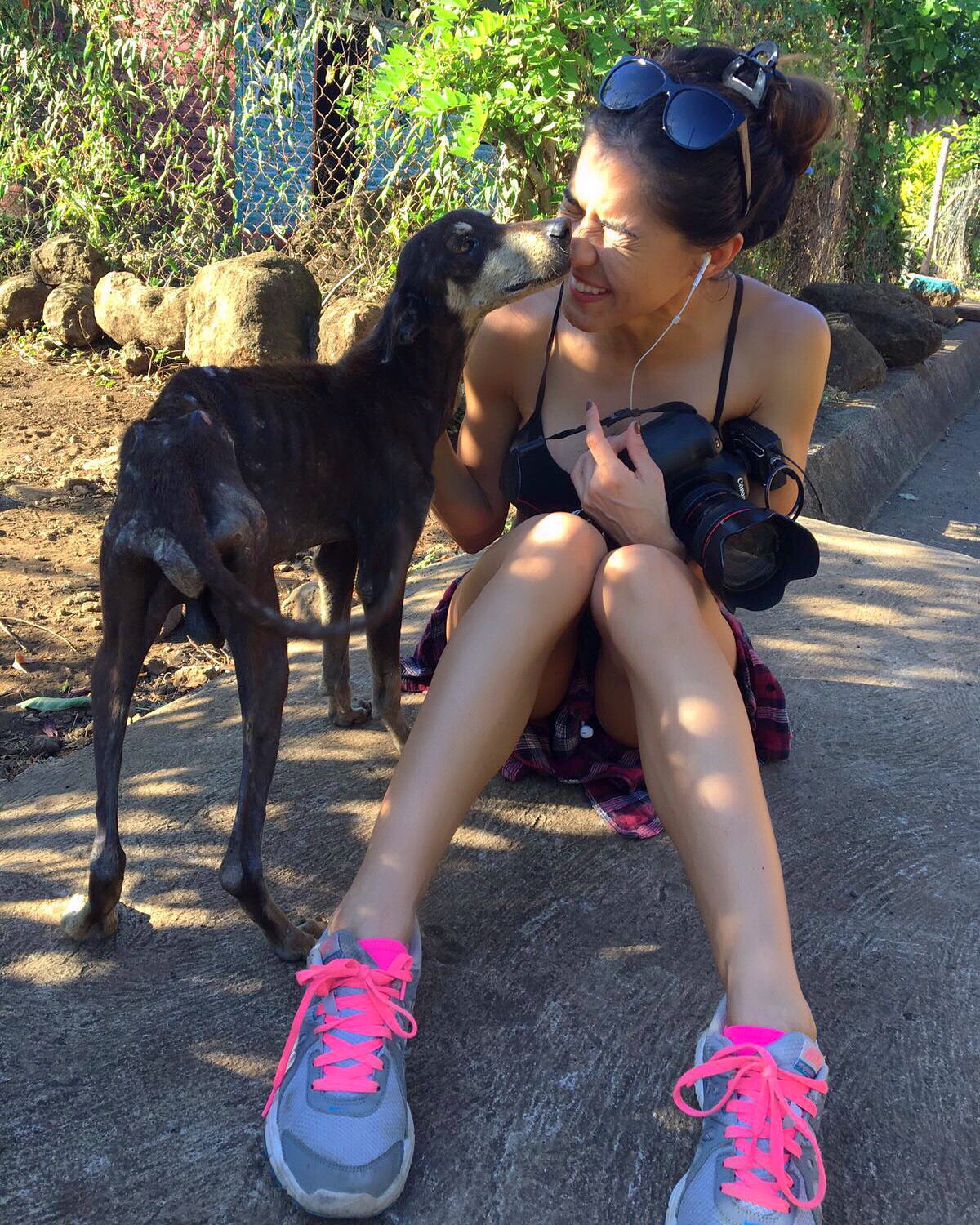
I think that volunteering is the safest, easiest route to start with. Do that and then you can start to build your career and see what credentials you’re gonna need. Are you gonna need to go back to school? Are you gonna need a PhD? Are you gonna need a Master’s degree and sort of going that route cause there’s a lot of careers in conservation that don’t require you to be a quote “scientist.”
I think that’s something that I would love for people to know. You can get involved and help out and also spread the message. Nowadays with social media, plenty of people can follow cool projects, reposting their stuff, being responsible tourists. When you go places, be sure you’re not promoting wildlife selfies and going and petting baby lion cubs at a tiger sanctuary or a tiger farm and stuff like that. Be sure you’re not riding elephants. Learn about responsible tourism; learn about responsible wildlife stuff. I think those are all really great starts to being more conservation minded.
